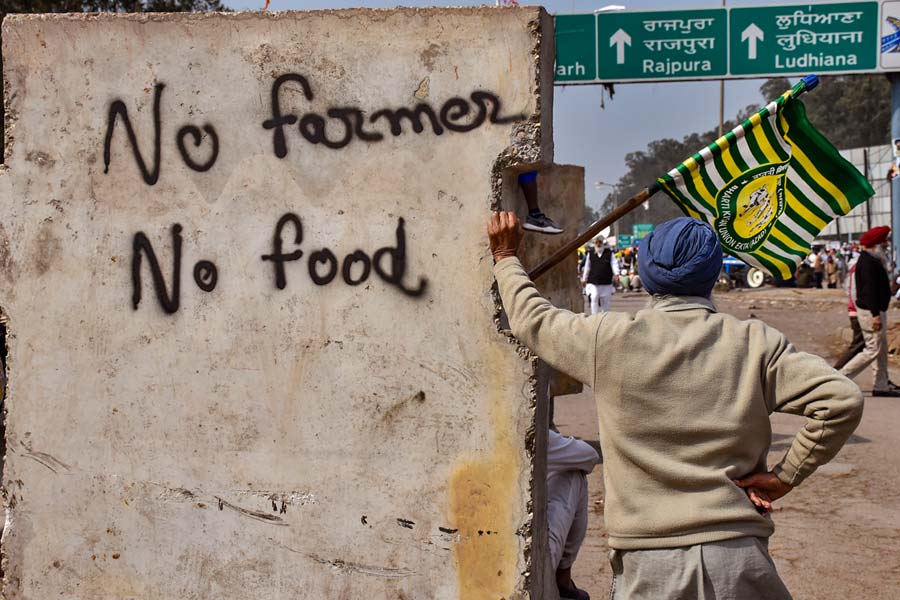The farmers’ agitation has been a thorn in the side of the Narendra Modi government. The core of the disagreement between the farmers and the Centre concerns the former’s demand for a minimum support price for agricultural produce. MSP is a price that is declared before the harvesting of a crop takes place. If the market price at which the farmers can sell falls below the MSP, the government steps in to buy the crop from them. However, there is no legal backing for such ‘support’ and the government decides how much to buy, leaving a dose of uncertainty in the expected income of farmers. A number of crops are covered under this scheme even though not all crops produced are eligible for MSP. The farmers want a legal guarantee for the declared set of MSPs. If this were to happen, the government would be bound to buy the produce as a legal commitment. The farmers have also demanded that all crops grown by them should be covered under the MSP scheme. Finally, they want the MSP to be computed according to the recommendations of the Swaminathan Commission; these are transparent and are likely to make the MSP higher than that arrived at by the current methodology. The reason why the farmers are quite adamant about these issues is possibly because in the Green Revolution belt of Punjab, Haryana and western Uttar Pradesh, intense scarcities have made farmers and farming suffer. Climate-related productivity shocks, a marked decline in water tables and several socio-economic changes have been at the root of the insecurity of the agriculturalists.
The government, on the other hand, wants farmers to remain dependent on market forces: the MSP would be an instrument of the last resort. There is concern that extending the MSP to all crops and the introduction of a legal guarantee could reduce the market for agricultural goods. Logistical challenges exist as well: how the government stores and distributes produce needs to be looked into. Finally, there are fiscal issues that cannot be ignored. Greater allocations and additional costs of procurement and storage would add to budgetary strains and could have an impact on consumer prices.
The MSP protest has political implications as well in an election year. Perhaps that explains the willingness of a usually inflexible regime to engage in conversation with the protesting farmers. Arrogance and rigidity should be shunned by both sides in the course of this engagement. If the government and the farmers agree that an assured income is the principal issue, then alternative solutions could be discussed. For instance, a basic income for farmers with a legal commitment could be envisaged. The matter at hand is complex. But it should be resolved at the earliest.











